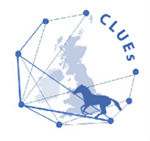EU Horizon 2020 award to RVC
BATCure, a consortium of leading scientific research groups and companies, in which The Royal Veterinary College is a key partner, has been awarded an EU Horizon 2020 grant of approximately 6 million Euros (Grant Agreement n. 666918). BATCure aims to investigate the natural history of Batten disease, elucidate the function of key proteins, and determine disease mechanisms, as well as develop new therapies for three forms of the disease.
Batten disease is one of approximately 50 lysosomal storage disorders (LSD), in which genetic mutations disrupt the cells ability to recycle waste. Children and young adults with Batten disease suffer progressive neurological impairment, which includes: seizures, visual impairment or blindness, personality and behaviour changes, dementia, loss of motor skills and loss of the ability to walk, talk and communicate. Sadly, until more strides are made in research, treatments and cures, Batten disease results in an early death.
Dr Claire Russell at The Royal Veterinary College will support BATCure efforts through her expertise in the use of zebrafish for disease modelling and drug discovery. Dr Russell says " This tropical freshwater fish that many people keep at home is widely used in laboratories to study human disease, as it has a remarkable amount of shared features with humans. The embryos are particularly useful for doing lots of experiments quickly, such as screening compounds, because they are easily produced in large numbers, are very small, and develop very fast."
One of the first steps in the BATCure project is the generation of zebrafish which exhibit the hallmarks of Batten disease. Concurrently, compounds will be screened in cellular models to identify those with therapeutic potential. The zebrafish models will then be used to select a few of the most promising compounds to test in a mouse model of Batten disease.
The bringing together of diverse experts into this consortium is really important to the overall success of BATCure. To quote the Batten Disease Family Association, another partner in this project: "Together we WILL make a difference".
The BATCure consortium is coordinated by Dr Sara Mole, University College London, United Kingdom.
You may also be interested in:
-
Contacts and clusters in UK equids - understanding infectious disease risks
The Horse Trust has awarded a grant to the RVC’s Dr Jackie Cardwell and Dr Kim Stevens, in …

